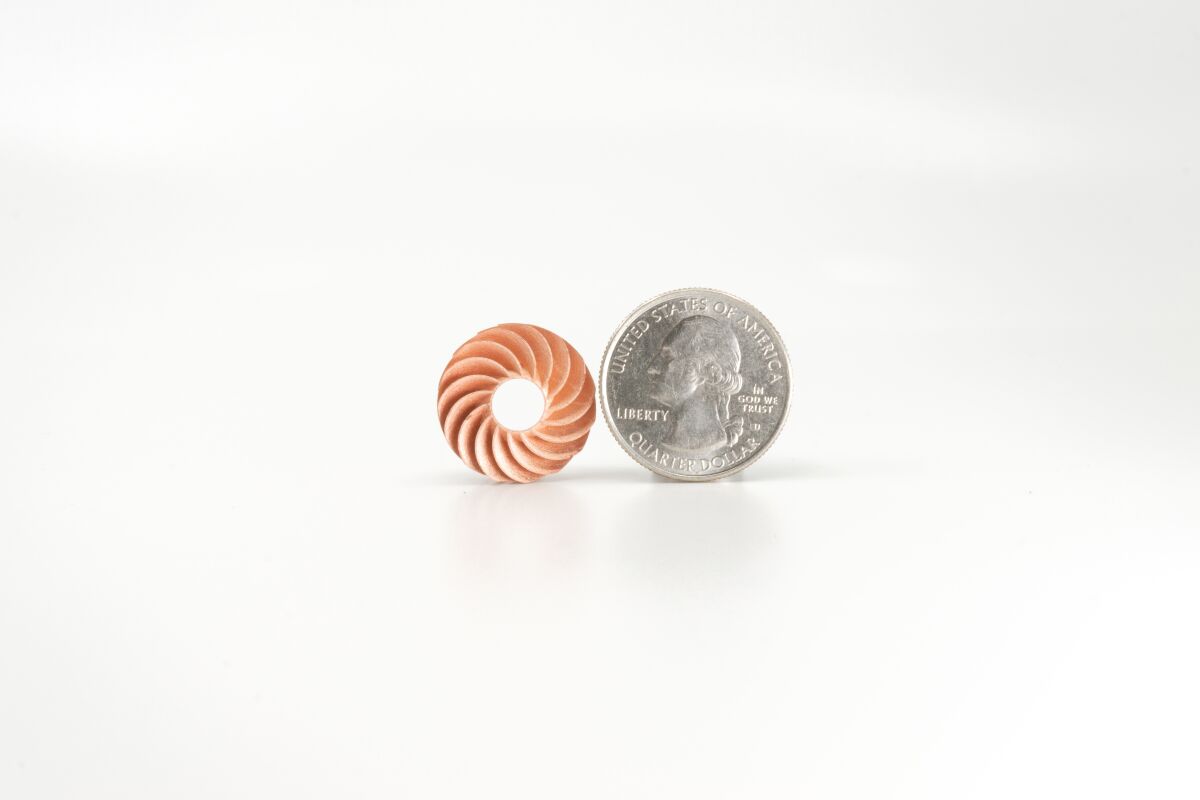Fabric8Labs from San Diego has secured $50 million in second round venture capital funding. Fabric8Labs has created a new way to 3D print metal without using powders.
The money will be used to build a pilot production facility in San Diego for the company’s proprietary Electrochemical Additive Manufacturing technology, which could roughly triple the company’s headcount over the next 12 to 18 months.
The pilot facility aims to prove out Fabric8Labs’ ability to economically 3D print very complex parts, especially using copper, for its top target markets, which include semiconductor heat sinks and radio frequency antenna parts.
“Thermal management and RF really bubbled up to the top,” said Jeff Herman, co-founder and chief executive of Fabric8Labs. “We have some unique aspects of our technology that address their needs. And what we have found is we are able to provide them not only with a cost saving on the production of their parts but also give them huge performance gains.”
Fabric8Labs was established in 2015 by David Pain (who attended La Costa Canyon High School together) and has since developed a nonthermal method for metal 3-D printing. The patent-pending electrochemical approach allows for high-purity metals to be used in complex internal patterns with micron-level feature resolution. According to the company, it also lends itself for mass manufacturing.
Heat sinks are installed to improve ventilation around central processors of powerful computers that overheat. Fabric8Labs’ non-thermal metal 3D printer process can create these intricate designs on a large scale.
Wireless companies are creating next-generation antennas in order to improve their reception for 5G base station or satellite communications. “You end up with these really complicated looking structures that have higher performance but for one reason or another would be really difficult to manufacturer,” said Pain. “If you are using an additive (manufacturing) process, that basically brings these types of designs into reality.”

Fabric8Labs thermal fin design
(Courtesy fabric8labs)
Fabric8Labs employs 57 employees. Mid-2021, it raised $19.3m in venture capital. In mid-2021, the company was planning to sell equipment for customers who wanted to build their own parts. Now, the startup’s business model has pivoted to where it will make the parts that customers want itself — first at its pilot production facility and later at other manufacturing locations, depending on demand.
Fabric8Labs’ latest funding was led by New Enterprise Associates, with participation from existing investors Intel Capital, imec.XPAND, SE Ventures, TDK Ventures and Lam Capital.